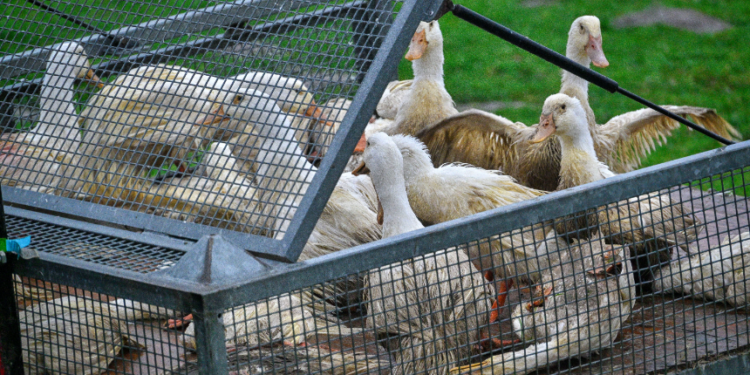
(NewsNation) — More Americans could be unknowingly carrying bird flu, according to a new report from the Centers for Disease Control and Prevention.
The report follows a series of random tests of 150 veterinarians, including some who did not work in areas with known flu outbreaks among cattle or flocks of chickens. The tests were conducted between January and September of last year and focused on detecting H5N1 antibodies, which would reveal recent exposure to bird flu.
Three veterinarians who specialized in cows tested positive for the virus and did not experience flu-like symptoms. Two of the three had no known exposure to animals infected with bird flu. One vet practiced in Georgia and South Carolina, where bird flu had not been reported in cows or humans.
The CDC’s findings underscore how diseases can easily spread when people are asymptomatic, much like the undetected spread of COVID-19 in 2020.
Report: Trust in the CDC is at an all-time low
Since April, nearly 70 people have been infected with bird flu across multiple states, including Nevada and Ohio. One person in Louisiana has died.
“We didn’t already have a vaccine for coronaviruses that was approved and FDA licensed. We have a seasonal flu vaccine. We have four of them on the market. They can be updated,” said Seema Lakdawala, a professor at Emory University School of Medicine. “So we also have stockpiled H5N1 vaccines because we’ve been preparing for an H5N1 pandemic since 2003.”
Health and Human Services Secretary Robert F. Kennedy Jr. has faced scrutiny over his past anti-vaccine stances but told senators last month he supports the development and distribution of bird flu vaccines.
The CDC’s report was delayed because President Donald Trump’s administration instructed federal health agencies to pause all external communications on Jan. 21, which prompted backlash in the medical community.
Data shows Americans’ trust in U.S. public health agencies such as the CDC has reached an all-time low.
How is the bird flu affecting egg prices?
In the past month, the price of a dozen eggs jumped nearly 60%. The current price is $7.33, up from $4.61 a month ago and significantly higher than last year’s $2.29.
To manage the demand, some grocery stores are limiting the number of eggs customers can purchase. Some restaurants, such as Waffle House, have added an egg surcharge.
Small business owners are feeling the pressure.
“It’s a tremendous hit,” said Joe Abouhassan, who owns a diner in Ohio. “I keep biting the bullet, and I don’t want to raise the prices. I keep saying, OK, maybe next week it will come down or the week after, but it hasn’t. And it doesn’t look like it’s going to in the immediate future.”
With the Easter holiday approaching, egg prices are expected to rise even more. The U.S. Department of Agriculture predicts prices will likely increase another 20%.







